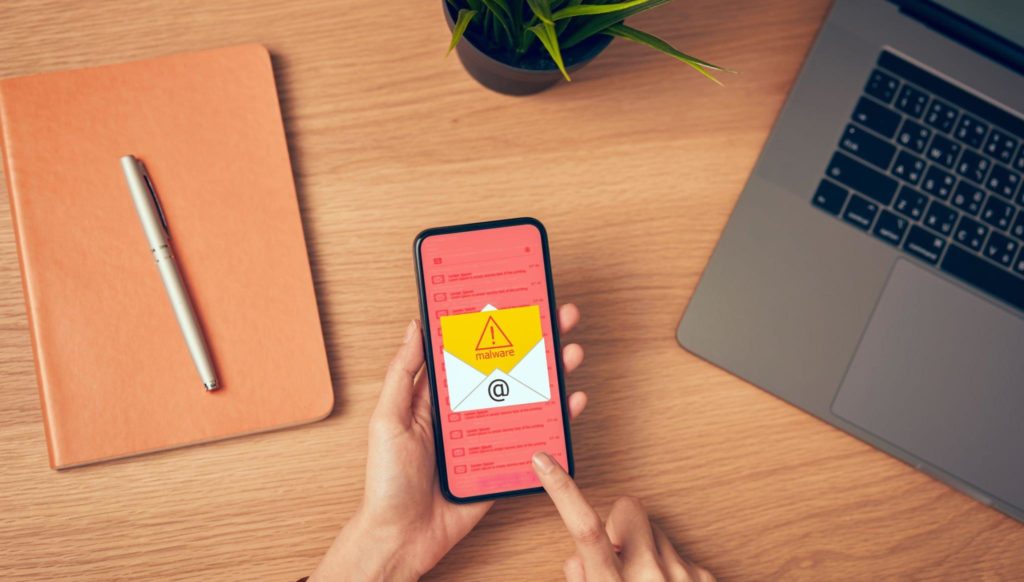If you own an Android device, it’s critical to protect it from viruses and malware. With so many antivirus apps to choose from, deciding can be tough. This article offers an in-depth look at the best antivirus applications for Android in 2025.
My favorite antivirus for Android is Bitdefender Mobile Security. It offers excellent malware protection, phishing protection, and anti-theft protection. It also has a good reputation for performance and is easy to use.
Understanding the importance of Android Antivirus is the first step in keeping your device safe. Cybercriminals are always looking for ways to exploit vulnerabilities in your device’s operating system to gain access to your personal information. Antivirus apps are designed to protect your device from these threats by detecting and removing malware, viruses, and other malicious software. In this article, we will explore the different types of threats to Android devices and the features that antivirus apps offer to protect against them.
Key Takeaways
- Android antivirus is essential for protecting your device from malware and viruses.
- The best antivirus apps offer features such as malware detection and removal, real-time protection, and anti-phishing tools.
- When evaluating antivirus apps for Android, consider factors such as performance, additional features, cost, and privacy protection.
Table of Contents
Why Antivirus is Essential for Android
As an Android user, you need to be aware of the potential security threats that exist on your device. Malware, viruses, and other forms of malicious software can cause serious damage to your device, steal your personal information, and compromise your privacy.
Antivirus software is essential for protecting your Android device from these threats. It provides a layer of security that can detect and remove malware, prevent phishing attacks, and protect your identity from theft.
One of the biggest threats to Android devices is malware. Malware can be disguised as legitimate apps, and once installed, it can steal your personal information, track your online activities, and even take control of your device. Antivirus software can detect and remove malware, ensuring that your device remains safe and secure.
In addition to malware protection, antivirus software can also provide anti-theft features. These features can help you locate your device if it’s lost or stolen, and even remotely lock or wipe your device to prevent unauthorized access.

Types of Threats to Android Devices
Here’s a list of the different kind of threats to watch out for on Android, and how a program like Bitdefender deals with them:
- Malware: Bitdefender Mobile Security uses a variety of techniques to protect your device from malware, including real-time scanning, cloud-based security, and signatureless detection. Real-time scanning scans all files and apps as they are downloaded or installed, while cloud-based security provides access to Bitdefender’s global network of security experts and resources. Signatureless detection uses advanced machine learning algorithms to identify and block new and emerging threats.
- Ransomware: Bitdefender Mobile Security includes anti-ransomware protection, which can detect and block ransomware attacks before they encrypt your files. It also includes a ransomware recovery tool, which can help you to restore your files if they are encrypted by ransomware.
- Phishing: Bitdefender Mobile Security includes anti-phishing protection, which can detect and block phishing attacks. It scans emails, text messages, and websites for suspicious links and warns you before you click on them.
- Identity Theft: Bitdefender Mobile Security includes anti-theft protection, which can help you to locate and recover your device if it is lost or stolen. It also includes a variety of security features, such as app lock and remote wipe, which can help to protect your data from unauthorized access.
- Adware: Bitdefender Mobile Security includes ad blocking, which can block unwanted advertisements from appearing on your device. This can improve your device’s performance and privacy.
- Viruses: Bitdefender Mobile Security includes virus protection, which can detect and block viruses from infecting your device. It also includes a virus removal tool, which can help you to remove viruses from your device if they are infected.
Overall, Bitdefender Mobile Security is a comprehensive antivirus app that can protect your Android device from a wide range of threats. It is easy to use and offers a variety of features to help you keep your device safe and secure.
Evaluating Antivirus Performance
When it comes to antivirus software, performance is a critical factor to consider. You want an antivirus program that can protect your device without slowing it down. Here are some key factors to consider when evaluating antivirus performance:
AV-Test and AV-Comparatives
AV-Test and AV-Comparatives are two of the most reputable independent testing labs for antivirus software. They conduct rigorous tests to evaluate the effectiveness of antivirus programs in terms of protection, performance, and usability. When choosing an antivirus program, it’s a good idea to look at the results of these tests to see how well the program performs.
False Positives
False positives occur when an antivirus program mistakenly identifies a harmless file as malware. This can be a significant problem because it can lead to the deletion of important files. When evaluating antivirus performance, it’s essential to consider the number of false positives reported by the program.
Usability
Usability is another critical factor to consider when evaluating antivirus performance. You want an antivirus program that is easy to use and doesn’t require a lot of technical knowledge. A program with a user-friendly interface and clear instructions can make a big difference in how effective the program is at protecting your device.
Testing
It’s also important to consider the testing methodology used by the antivirus program. Some programs use signature-based detection, which means they look for known malware signatures. Other programs use behavioral analysis, which looks for suspicious behavior that could indicate malware. A program that uses both methods is likely to be more effective at detecting and removing malware.
In conclusion, when evaluating antivirus performance, it’s essential to consider factors such as AV-Test and AV-Comparatives results, false positives, usability, and testing methodology. By doing so, you can choose an antivirus program that will effectively protect your device without slowing it down.
Top Antivirus Apps for Android
When it comes to protecting your Android device from malware and other security threats, there are many antivirus apps available in the market. Here are some of the top antivirus apps for Android that you can consider using:
Bitdefender Mobile Security
Bitdefender Mobile Security is one of the best antivirus apps for Android. It offers comprehensive protection against malware, spyware, and other security threats. The app also includes features like anti-theft, web protection, and app lock. Bitdefender Mobile Security is available for free on the Google Play Store, but you can also upgrade to the premium version for additional features.
Norton Mobile Security
Norton Mobile Security is another popular antivirus app for Android. It offers features like malware protection, anti-theft, and web protection. The app is easy to use and provides real-time protection against security threats. Norton Mobile Security is available for free on the Google Play Store, but you can also upgrade to the premium version for additional features.
Avira Antivirus Security
Avira Antivirus Security is a reliable antivirus app for Android. It offers features like malware protection, anti-theft, and web protection. The app is easy to use and provides real-time protection against security threats. Avira Antivirus Security is available for free on the Google Play Store, but you can also upgrade to the premium version for additional features.
Additional Features of Android Antivirus Apps
Antivirus apps for Android offer a range of additional features beyond just virus protection. These features can help keep your device and personal information safe from a variety of threats. Here are some of the most common additional features to look for when choosing an antivirus app:
Identity Protection
Identity protection features can help safeguard your personal information, such as your name, address, and social security number, from being stolen by hackers. Some antivirus apps offer identity theft protection as part of their paid plans, while others offer it as a separate add-on.
Wi-Fi Security
Wi-Fi security features can help protect your device from malicious attacks when connected to public Wi-Fi networks. Some antivirus apps offer Wi-Fi scanners that can detect and alert you to potential security risks on public networks.
Parental Controls
Parental control features can help parents monitor and control their children’s use of their Android devices. These features can include content filtering, app blocking, and screen time limits.
VPNs
Some antivirus apps offer VPN access as part of their paid plans. VPNs (virtual private networks) can help protect your online privacy and security by encrypting your internet traffic and masking your IP address.
Photo Vault
A photo vault feature can help you keep sensitive photos and videos private and secure. Some antivirus apps offer this feature as part of their paid plans, while others offer it as a separate add-on.
Backup
Backup features can help you protect your important data by automatically backing up your files to the cloud or an external storage device. Some antivirus apps offer this feature as part of their paid plans, while others offer it as a separate add-on.
Automatic Scans
Automatic scan features can help ensure that your device is always protected by automatically scanning for viruses and other threats on a regular basis. Some antivirus apps offer customizable scan schedules, while others perform scans in the background without interrupting your device usage.
Privacy Advisor
Privacy advisor features can help you identify and manage apps that may be accessing your personal information without your knowledge or consent. Some antivirus apps offer this feature as part of their paid plans, while others offer it as a separate add-on.
Password Management
Password management features can help you create and manage strong, unique passwords for all of your online accounts. Some antivirus apps offer this feature as part of their paid plans, while others offer it as a separate add-on.
Overall, the additional features offered by antivirus apps can provide added layers of protection and peace of mind for Android users. When choosing an antivirus app, consider which features are most important to you and look for a plan that offers those features at a reasonable price.
Free Android Antivirus Apps
There are a number of free antivirus apps available for Android. One of the best examples is Avast Mobile Security. Avast Mobile Security is a popular free antivirus app that offers good protection against malware, ransomware, and phishing attacks. It also includes a number of other features, such as app lock, anti-theft protection, and a junk file cleaner.
Another good free antivirus app is Kaspersky Mobile Antivirus. Kaspersky Mobile Antivirus offers excellent protection against malware and other threats. It also includes a number of other features, such as anti-phishing protection, anti-theft protection, and a parental control feature.
Both Avast Mobile Security and Kaspersky Mobile Antivirus are good free antivirus apps. The best app for you will depend on your individual needs and preferences. I recommend that you read reviews of both apps before making a decision.

Installing and Configuring Antivirus Apps
Protecting your Android device from malware and other threats is crucial, and installing an antivirus app is an essential step in achieving that. Here’s how to install and configure an antivirus app on your Android device.
Installing an Antivirus App
You can find antivirus apps on the Google Play Store, which is the official app store for Android devices. To install an antivirus app, follow these steps:
- Open the Google Play Store app on your Android device.
- Search for the antivirus app you want to install.
- Tap the “Install” button to start the installation process.
- Wait for the app to download and install on your device.
Once the app is installed, you can open it and start using it to scan your device for malware and other threats.
Configuring an Antivirus App
After installing an antivirus app, it’s essential to configure it properly to ensure that it provides optimal protection for your device. Here are some tips for configuring an antivirus app:
- Update the app: Make sure that the antivirus app is up to date. Antivirus apps often receive updates that include bug fixes and new features, so it’s essential to keep the app up to date to ensure that it provides optimal protection.
- Configure the user interface: Most antivirus apps come with a user interface that allows you to configure the app’s settings. Take some time to explore the user interface and configure the app’s settings to your liking.
- Configure Bitdefender Central: If you’re using Bitdefender Mobile Security, you can configure the app using Bitdefender Central, which is a web-based dashboard that allows you to manage your Bitdefender account and devices.
- Configure the scan schedule: Most antivirus apps allow you to configure the scan schedule. You can set the app to scan your device automatically at specific intervals, such as daily or weekly.
- Configure the notifications: Antivirus apps often send notifications when they detect malware or other threats. You can configure the notifications to ensure that you receive notifications only when necessary.
In conclusion, installing and configuring an antivirus app on your Android device is easy and essential for protecting your device from malware and other threats. By following the tips outlined above, you can ensure that your antivirus app provides optimal protection for your device.
Privacy and Data Protection
When it comes to choosing an antivirus for your Android device, privacy and data protection should be one of your top concerns. Your phone contains a lot of personal information, including your contacts, messages, photos, and more. Therefore, it is essential to choose an antivirus that can protect your privacy and keep your data safe.
One of the essential features to look for in an Android antivirus is privacy protection. This feature can prevent apps from accessing your personal information without your consent. Some antivirus apps can also block ads and trackers that collect your data and send it to third-party companies.
Identity theft is a growing concern, and it is crucial to protect your identity when using your Android device. Look for an antivirus that offers identity protection features, such as monitoring your credit score, scanning the dark web for your personal information, and providing identity theft protection services.
Dealing with False Positives and Ads
When it comes to antivirus apps, false positives and ads can be a common issue. False positives occur when an antivirus app detects a harmless file or program as a threat, while ads can be intrusive and annoying. Here are some tips to help you deal with these issues:
False Positives
False positives can be frustrating, but they are also a sign that your antivirus app is doing its job. However, if you’re constantly receiving false positives, it can be a hassle to deal with. Here are some ways to minimize false positives:
- Whitelist trusted files and programs: If you know that a file or program is safe, you can add it to your antivirus’ whitelist. This will prevent it from being detected as a threat in the future.
- Update your antivirus app: Antivirus apps are constantly updating their threat databases to improve their detection rates. Updating your app regularly can help reduce false positives.
- Submit the file for analysis: If you’re unsure whether a file is safe or not, you can submit it to your antivirus vendor for analysis. This will help them improve their detection rates and reduce false positives in the future.
Ads
Ads are a common way for antivirus apps to generate revenue, but they can also be intrusive and annoying. Here are some tips to help you deal with ads:
- Upgrade to a paid version: Most antivirus apps offer a paid version that removes ads and provides additional features. If you’re tired of ads, upgrading to a paid version may be worth it.
- Look for ad-free alternatives: If you don’t want to pay for an antivirus app, there are ad-free alternatives available. For example, Bitdefender Mobile Security offers a free version without ads.
- Be cautious of scam alerts: Some antivirus apps may display scam alerts to trick you into clicking on ads. Be cautious of these alerts and make sure they’re legitimate before clicking on them.
Overall, false positives and ads can be a nuisance, but there are ways to deal with them. By following these tips, you can minimize false positives and reduce the impact of ads on your user experience.
Conclusion Best Antivirus for Android
Now that you have reviewed the best antivirus apps for Android, it is up to you to choose the one that best suits your needs. Keep in mind that your smartphone or tablet contains sensitive information that you want to keep secure. Therefore, investing in a good security software is a wise decision.
My favorite antivirus for Android is Bitdefender Mobile Security. It offers excellent malware protection, phishing protection, and anti-theft protection. It also has a good reputation for performance and is easy to use.
Bitdefender Mobile Security also offers a number of additional features, such as a VPN, a password manager, and a file scanner. These features can be helpful for protecting your privacy and security online.
Frequently Asked Questions
What are some top-rated antivirus apps for Android?
Some of the top-rated antivirus apps for Android include Norton Mobile Security, Bitdefender Mobile Security, McAfee Mobile Security, Avast Mobile Security, and Kaspersky Mobile Antivirus. These apps offer a range of features to protect your Android device from malware, viruses, and other security threats.
How do I choose the best antivirus for my Android device?
When choosing an antivirus app for your Android device, consider factors such as the app’s reputation, features, and price. Look for apps that offer real-time scanning, malware removal, and other security features to keep your device safe. Additionally, read reviews and compare different apps to find the one that best fits your needs.
Are there any free antivirus apps for Android that are reliable?
Yes, there are several free antivirus apps for Android that are reliable. Some of the top free options include Norton Mobile Security, Avast Mobile Security, and AVG Antivirus Free. These apps offer basic protection against malware and viruses, but may not include some of the more advanced features found in paid apps.
Do Android devices really need antivirus protection?
Yes, Android devices can benefit from antivirus protection. While Android devices are generally less vulnerable to viruses than Windows computers, they can still be targeted by malware and other security threats. Antivirus protection can help keep your device safe from these threats and prevent data loss or theft.
What features should I look for in an Android antivirus app?
When choosing an antivirus app for your Android device, look for features such as real-time scanning, malware removal, web protection, and anti-phishing capabilities. Additionally, consider factors such as the app’s reputation, ease of use, and price.
Can I use the same antivirus on my Android device as I do on my Windows computer?
In most cases, no. While some antivirus companies offer both Windows and Android versions of their software, these are typically separate products that require separate licenses. Additionally, the features and capabilities of the Android version may differ from those of the Windows version. Be sure to check with the antivirus provider to see if they offer a version of their software that is compatible with both your Windows computer and Android device.
- Amazon Email Phishing: How to Identify and Avoid Scams - May 11, 2025
- Malwarebytes vs McAfee: Decoding the Ultimate Antivirus Battle - May 11, 2025
- Best Antivirus for Windows 10: Expert Recommendations for 2023 - May 11, 2025










6 thoughts on “Best Antivirus for Android: Top Picks for 2025”